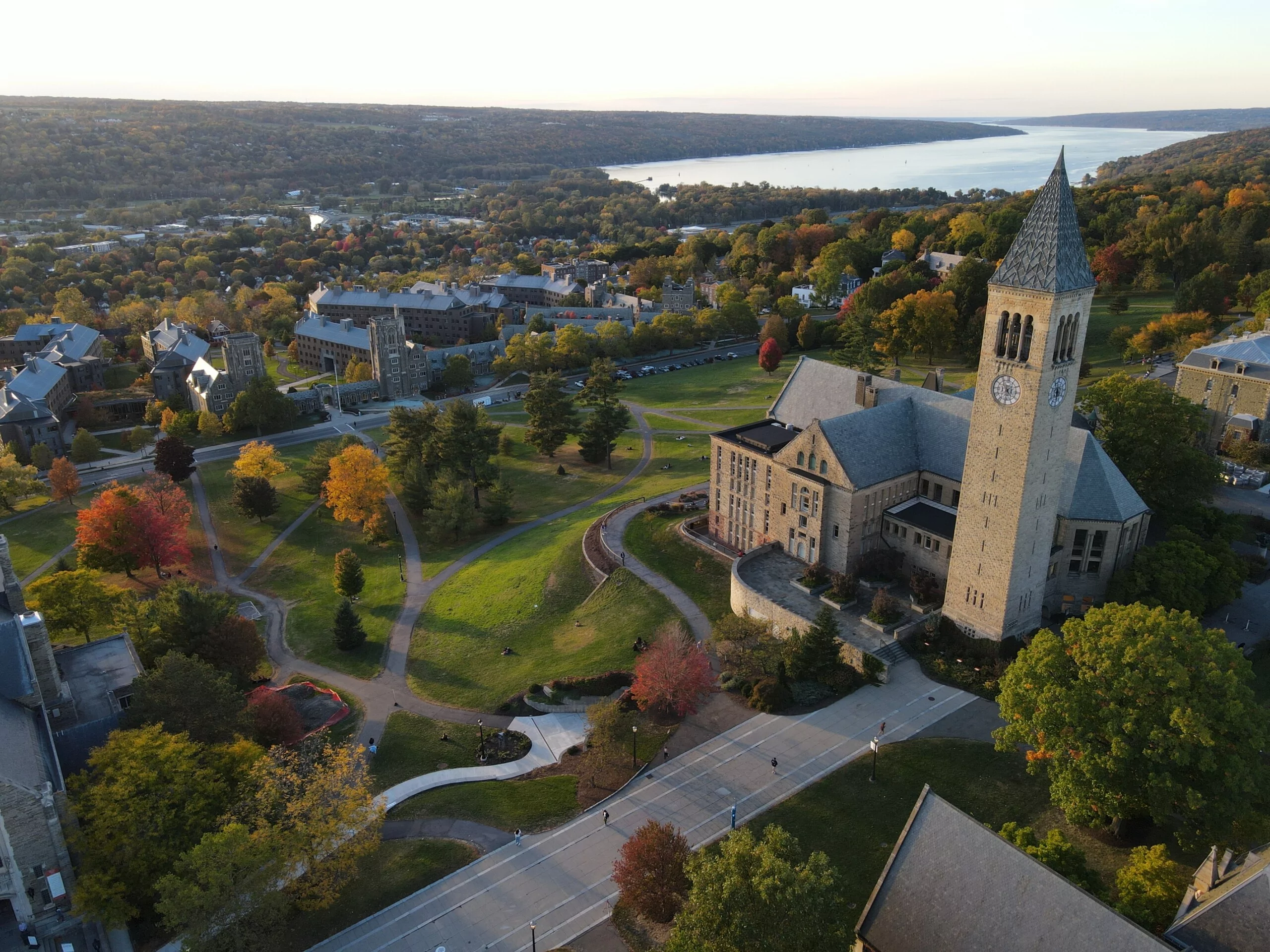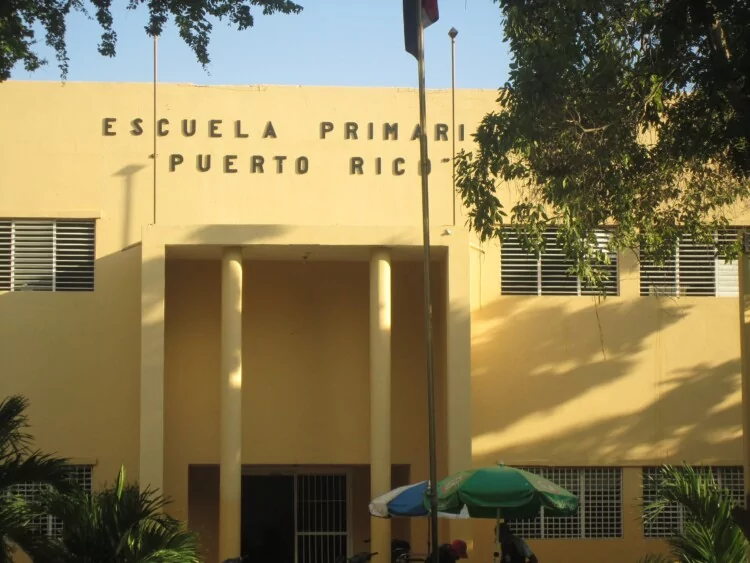The William T. Grant Foundation, Spencer Foundation, and Doris Duke Charitable Foundation are delighted to announce the winners of the 2022 Institutional Challenge Grant competition. The Institutional Challenge Grant encourages university-based research institutes, schools, and centers to grow existing research-practice partnerships with public agencies or nonprofit organizations in order to reduce inequality in youth outcomes. Equally important, grantee institutions must shift their policies and incentives to value collaborative work and enhance the capacity of the partner organization to use evidence from research in its decision-making.
The newest grants, amounting to nearly $1,950,000, are being awarded to the University of Michigan, Ann Arbor; Florida State University and Florida A&M University; and Georgia State University. These institutions will work in partnership with local nonprofits or public agencies to build mental health supports for Black youth in workforce development program outcomes, reduce education disparities, and reduce inequalities in post-secondary debt. The William T. Grant Foundation will also supplement a grant to the University of Colorado, Boulder, to extend its collaboration with the Denver Public Schools, which is focused on closing large achievement gaps through research that helps improve district policies that affect teachers.
“Universities need new strategies to value and encourage partnership-oriented, engaged scholarship”
Adam Gamoran, president of the William T. Grant Foundation, stated: “These grants leverage the power and networks of universities to reduce inequality in youth outcomes, a persisting challenge that has become even more severe during the COVID-19 pandemic. Research to reduce inequality is most likely to be helpful when it comes not out of ivory tower isolation, but rather from deep engagement with community partners. To support this work, universities need new strategies to value and encourage partnership-oriented, engaged scholarship, a key aim of the Institutional Challenge Grant program.”
Institutional Challenge Grantees conduct rigorous research on strategies to reduce inequalities in youth outcomes, take steps to enhance an institutional infrastructure for supporting and rewarding community-engaged research, and strengthen the capacity of partner agencies to use research in their practice. The program’s nine previously funded partnerships are demonstrating success in all three areas. In one project, research uncovered a gap in culturally-relevant parenting programs available to the community and the research and partner organization are collaborating to better support Black parents in their community. Other projects have demonstrated the potential for significant institutional change, including new university leadership positions focused on encouraging and supporting community engaged research and new criteria for evaluating faculty that conduct community engaged research.
Rumeli Banik, senior program officer for child well-being at the Doris Duke Charitable Foundation, said: “Strengthening research-practice partnerships is essential to developing and implementing solutions for policymakers, practitioners and communities. We are excited to support the generation of research evidence that involves collaboration between and input from these different stakeholders, as well as a diverse set of voices that are reflective of the communities we aim to serve.”
“We are excited to support the generation of research evidence that involves collaboration between and input from these different stakeholders, as well as a diverse set of voices that are reflective of the communities we aim to serve”
Na’ilah Suad Nasir, president of the Spencer Foundation stated: “We are thrilled to support this grant program and its twin aims of reducing inequality and encouraging institutional change. We believe in the power of research-practice partnerships to promote critical change when researchers, educators, and communities are learning together in close partnership.”
This year’s Institutional Challenge Grants:
Focus: Mental Health: A Stress and Workforce Development Intervention Promoting Racial and Economic Justice Among Youth
Enrique Neblett, School of Public Health, University of Michigan; Jasahn Larsosa, Focus: HOPE
Co-funded by the William T. Grant Foundation, the Doris Duke Charitable Foundation, and the Spencer Foundation
This grant supports a partnership between the University of Michigan and Focus: HOPE, one of the largest education nonprofit agencies in Detroit. While workforce development programs can be a viable option to address employment needs for youth during the transition to adulthood, the current evidence suggests the benefit of these programs is stronger for White than Black participants. The project aims to understand and address how Black youth’s stress burden and mental health affects participation in and the outcomes of workforce development programs. Through community-based participatory action research, the partners will build, test, and increase understanding of workforce development programs, as well as examine how the impact of mental health-enhanced workforce development programs can benefit employment, economic, and mental health outcomes for young people. The team will use photovoice and focus group approaches to elicit youth’s insights on the current mental health challenges and experiences participating in the Focus: HOPE workforce development programs. They will then use the qualitative findings to design mental health supports for participating youth. A randomized trial conducted on 160 youth, aged 18-25, will compare current workforce development programs and workforce development programs with added mental health resources. To understand the mechanisms of how and why the intervention did or did not produce impacts, the team will collect qualitative data from a subset of the participants in the randomized trial. To support the institutional change portion of the grant, the university will: 1) provide seed money for the Detroit Community-Academic Urban Research Center to support youth-focused partnership work, 2) offer consultation and professional development workshops to support faculty interested in strengthening their public engagement research skills, 3) collaborate with the Faculty Senate Advisory Committee on University Affairs to convene a workgroup dedicated to addressing institutional barriers to sustained community-engaged research, and 4) convene a mini-conference at the university to feature the work of research practice partnerships. On the practice side, the grant will advance Focus: HOPE’s access to, interpretation of, and use of research through capacity building training for staff.
University Research Partnerships to Reduce Educational Disparity in College Towns: Building a Model in Tallahassee, FL
Nicole Patton-Terry, School of Teacher Education, Florida Center for Reading Research, Florida State University; Dr. Michelle Gayle, Leon County Schools
Co-funded by the William T. Grant Foundation, the Doris Duke Charitable Foundation, and the Spencer Foundation
This grant supports a partnership between Florida State University, Leon County Schools, and Florida A&M University, which aims to address educational disparities, specifically in reading. This grant extends an existing research-practice partnership that has already informed programming and instruction in the public schools with its research. The team will engage in two main research activities: 1) using propensity scores to evaluate two supplemental reading programs in kindergarten through 2nd grade, and 2) providing seed grants and building the capacity of faculty fellows to co-develop new research projects with the district. The grant intentionally builds upon the initial reading study as a platform to enhance mid-career faculty skills aimed at generating multiple additional partnership-generated research projects in specific areas that the district has prioritized. This grant proposes institutional change at both Florida State University and Florida A&M University. These universities are in the same community and share faculty across research projects and departments. At Florida State, the grant will develop a competitive award program to incentivize faculty to work with students to develop research activities as part of service-learning programs. In addition, the team will work with the Office of Faculty Development and Advancement to build faculty capacity related to research-practice partnerships and work with the Office of Research Development to showcase research-practice partnership projects at Florida State University. At Florida A&M, the team will work with the Dean of the College of Education to build faculty capacity to develop and execute research-practice partnerships. The school district will build capacity to use research through professional development for teachers and school administrators on the research findings, demonstrating through research how evidence-based approaches have reduced existing disparities in the school, and building communities of practice to identify effective practices and implementation strategies. Ultimately, the team will develop a toolkit and framework to help other predominantly White institutions and Historically Black Colleges and Universities to promote research-practice partnerships as a strategy for faculty and student development and to address disparities in their local communities.
Reducing Inequities in Postsecondary Debt and Repayment through a Multi-Sector Research-Practice Partnership
Sally Wallace, Andrew Young School of Policy Studies, Georgia State University; Tina Villanueva Fernandez, Achieve Atlanta
Co-funded by the William T. Grant Foundation, the Doris Duke Charitable Foundation, and the Spencer Foundation
This grant supports a collaboration between Georgia Policy Labs at Georgia State University and Achieve Atlanta, a nonprofit that helps Atlanta Public School students access, afford, and earn postsecondary credentials. The combination of increasing college tuition and decreasing state funding has pushed the burden of financing postsecondary education on students, creating a college access and completion problem for students experiencing economic disadvantage. Furthermore, an increasing number of students leave college with large student loan debt, further exacerbating racial economic disparities in the ability to repay debt. The partnership aims to reduce racial, ethnic, and economic disparities in how new college students finance their education to reduce long-term inequities in higher education attainment. First, the team will use both a regression discontinuity and difference-in-differences design leveraging data from Achieve Atlanta, Atlanta Public Schools, University System of Georgia, Technical College System of Georgia, and Equifax credit bureau to evaluate how the Achieve Atlanta scholarship and associated services impact the way students finance their education through loans, overdue student and non-student debt after college, loan default, and credit scores. Next, the team will conduct a randomized trial examining a financial counseling intervention targeting first-year Achieve Atlanta scholars and students who recently left Georgia State University. The intervention focuses on appropriate loan borrowing while in college to mitigate student debt burden and repayment options after college. Finally, qualitative participatory action research will yield findings on how students make financial decisions to pay for college, how Achieve Atlanta can improve their services, and the students’ plans for loan repayment. To support the goal of institutional change at the university, Georgia State University will create an Engaged Research Competition to promote engaged research for untenured faculty and Ph.D. students, which will provide time and support to build new research-practice partnerships. In addition, the team plans to discuss with the Provost the potential to elevate engaged research in promotion and tenure policies. On the practice side, the grant will increase the amount and scope of research that Achieve Atlanta can participate in and allow them to focus their work on effective strategies to reduce existing gaps by race and economic advantage. Finally Achieve Atlanta staff will participate in summer trainings on qualitative and quantitative research to build staff capacity to understand and use research.
The Institutional Challenge Grant Continuation Award:
Mind the Gap: Partnering to Narrow Denver’s Achievement Gaps by Retaining Top Teachers
Mimi Engel, School of Education, University of Colorado, Boulder and Sarah Almy, Denver Public Schools
Funded by the William T. Grant Foundation
This continuation grant extends the collaboration between the University of Colorado, Boulder (CU) and the Denver Public Schools (DPS), which is focused on closing large achievement gaps through research that helps improve district policies that affect teachers. With continuation funding, the team will conduct an in-depth study of the DPS teacher evaluation system to explore whether and to what extent the system results in more negative evaluations of teachers of color and teachers who serve the district’s most disadvantaged students. Results of the study will be used to reform the DPS teacher evaluation system with the aim of retaining teacher talent and reducing opportunity and outcome gaps for students. Toward the ICG program’s goal of building the capacity of the practice organization to use research, DPS has worked closely with CU to co-develop research questions and design the evaluations. The teams met consistently to ensure DPS understood the results of the research and how the results could be used to inform both policy development and planning for reform. In addition, at the start of the pandemic, DPS turned to CU for research information to inform virtual learning. Finally, DPS worked closely with CU to revise the employee exit survey to make the data more useful to DPS. The continuation funding will support work toward three goals: 1) understanding and using evidence on multi-measure teacher evaluations; 2) supporting the regular sharing of findings between CU, DPS, and the teachers union; and 3) using the results of the LEAP evaluation to reform the teacher evaluation system. The initial grant had two research activities: 1) describe longitudinal patterns in teacher retention in, and exit from, DPS, and 2) evaluate the Teacher, Leadership & Collaboration program (TL&C), a district-wide career ladder program offering teachers leadership positions with dedicated non-teaching time while still remaining in the classroom. As a result of a teacher strike at the start of the grant, the team added a third research activity to evaluate the district’s Highest Priority Incentive program, a financial incentive program targeting teachers who remain in, or transfer to, Denver’s hardest-to-staff schools.
###
Each new grantee will receive about $650,000 to carry out their proposed project. Grantees will have the opportunity to apply for two years of additional funding following success in their first three years. The University of Colorado grantee is receiving their additional two years of funding of $350,000.
The first Institutional Challenge Grant was awarded in 2018. In 2019, the Foundation began to work with partners to expand the program to eligible institutions. In 2019, the Spencer Foundation joined the William T. Grant Foundation to fund two Institutional Challenge Grants; in 2020 the Doris Duke Charitable Foundation, Spencer Foundation, and the William T. Grant Foundation united to fund three grants. In 2021, the American Institutes for Research, the Doris Duke Charitable Foundation, the Spencer Foundation, and William T. Grant Foundation awarded an additional three grants. Now in 2022, the Doris Duke Charitable Foundation, the Spencer Foundation, and William T. Grant Foundation are awarding an additional three grants.





